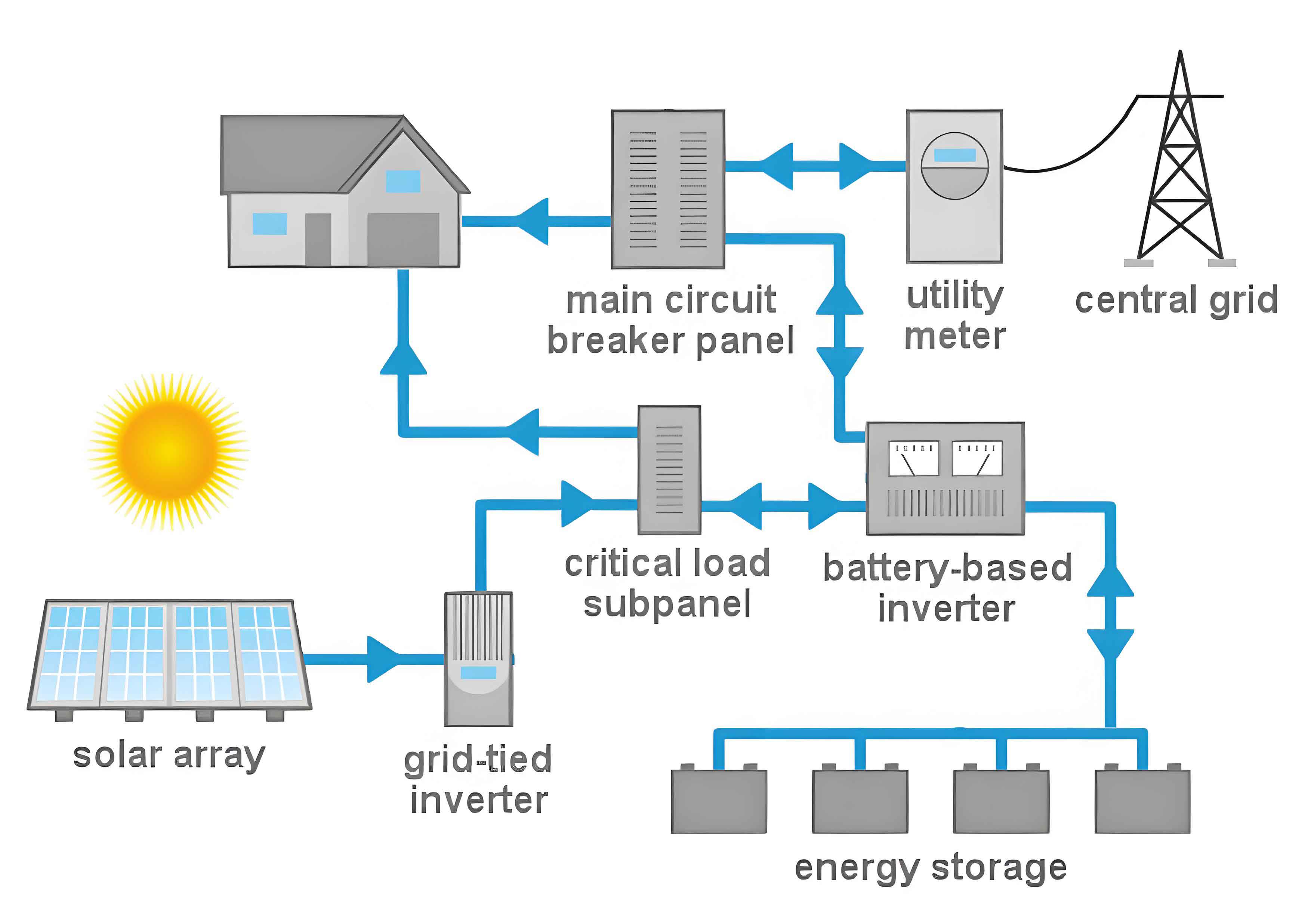
As the demand for renewable energy sources increases, more homeowners are turning to home solar power systems to generate electricity and reduce their carbon footprint. One of the critical components of an efficient and reliable home solar power system is battery storage. Battery storage solutions are essential for maximizing the benefits of solar power, ensuring energy availability, and providing backup power during outages. This article explores various battery storage solutions for home solar power systems, their benefits, and important considerations for homeowners.
Why Battery Storage is Important for Home Solar Power Systems
Battery storage solutions play a crucial role in home solar power systems for several reasons:
- Energy Independence: Battery storage allows homeowners to store excess solar energy generated during the day for use during nighttime or cloudy days, reducing reliance on the grid.
- Backup Power: In case of a power outage, battery storage can provide backup power to keep essential appliances and devices running.
- Cost Savings: By storing solar energy and using it during peak hours when electricity rates are higher, homeowners can save on their electricity bills.
- Grid Stability: Battery storage helps to stabilize the grid by reducing demand during peak times and providing excess energy back to the grid when needed.
Types of Battery Storage Solutions
There are several types of battery storage solutions available for home solar power systems. Each type has its advantages and disadvantages, making it essential for homeowners to choose the right one based on their needs and budget.
1. Lithium-Ion Batteries
Lithium-ion batteries are the most common type of battery storage solution used in home solar power systems. They are known for their high energy density, long lifespan, and efficiency.
Advantages:
- High energy density
- Long lifespan (typically 10-15 years)
- High efficiency (90-95%)
- Compact and lightweight
Disadvantages:
- Higher cost compared to other battery types
- Requires a battery management system (BMS) to ensure safety
2. Lead-Acid Batteries
Lead-acid batteries are one of the oldest and most reliable battery storage solutions. They are widely used in home solar power systems due to their affordability and availability.
Advantages:
- Lower cost compared to lithium-ion batteries
- Proven reliability and durability
- Easy to recycle
Disadvantages:
- Lower energy density
- Shorter lifespan (5-10 years)
- Requires regular maintenance
- Lower efficiency (70-80%)
3. Flow Batteries
Flow batteries are a newer type of battery storage solution that uses liquid electrolytes to store energy. They are known for their scalability and long lifespan.
Advantages:
- Long lifespan (20+ years)
- Scalability for larger energy storage needs
- High efficiency (80-85%)
Disadvantages:
- Higher initial cost
- Larger size and weight
- Limited availability
4. Nickel-Based Batteries
Nickel-based batteries, such as nickel-cadmium (NiCd) and nickel-metal hydride (NiMH), are also used in home solar power systems. They are known for their durability and ability to operate in extreme temperatures.
Advantages:
- Durable and robust
- Can operate in extreme temperatures
- Moderate efficiency (70-75%)
Disadvantages:
- Higher cost compared to lead-acid batteries
- Environmental concerns due to toxic materials
- Limited availability
Comparing Battery Storage Solutions
When choosing a battery storage solution for a home solar power system, it is essential to consider various factors, such as cost, lifespan, efficiency, and maintenance requirements. The following table provides a comparison of the different battery storage solutions:
| Battery Type | Cost | Lifespan | Efficiency | Maintenance | Environmental Impact |
|---|---|---|---|---|---|
| Lithium-Ion | High | 10-15 years | 90-95% | Low | Moderate |
| Lead-Acid | Low | 5-10 years | 70-80% | High | High |
| Flow | High | 20+ years | 80-85% | Moderate | Low |
| Nickel-Based | Moderate | 10-15 years | 70-75% | Moderate | High |
Key Considerations for Homeowners
When selecting a battery storage solution for a home solar power system, homeowners should consider the following factors:
- Energy Needs: Assess the household’s energy consumption to determine the required battery storage capacity.
- Budget: Consider the initial cost, installation cost, and long-term savings to choose a solution that fits the budget.
- Lifespan: Evaluate the expected lifespan of the battery to ensure it meets the homeowner’s long-term energy needs.
- Efficiency: Higher efficiency batteries can store and deliver more energy, reducing overall energy losses.
- Maintenance: Consider the maintenance requirements and whether the homeowner is willing to perform regular upkeep.
- Environmental Impact: Choose a battery storage solution with minimal environmental impact, considering factors such as recyclability and the use of toxic materials.
Conclusion
Battery storage solutions are essential for maximizing the benefits of home solar power systems. They provide energy independence, backup power, cost savings, and contribute to grid stability. Homeowners have several options to choose from, including lithium-ion, lead-acid, flow, and nickel-based batteries, each with its advantages and disadvantages. By carefully considering energy needs, budget, lifespan, efficiency, maintenance, and environmental impact, homeowners can select the most suitable battery storage solution to complement their home solar power systems.
Investing in a reliable and efficient battery storage solution ensures that homeowners can make the most of their solar energy, reduce their reliance on the grid, and contribute to a sustainable future.
